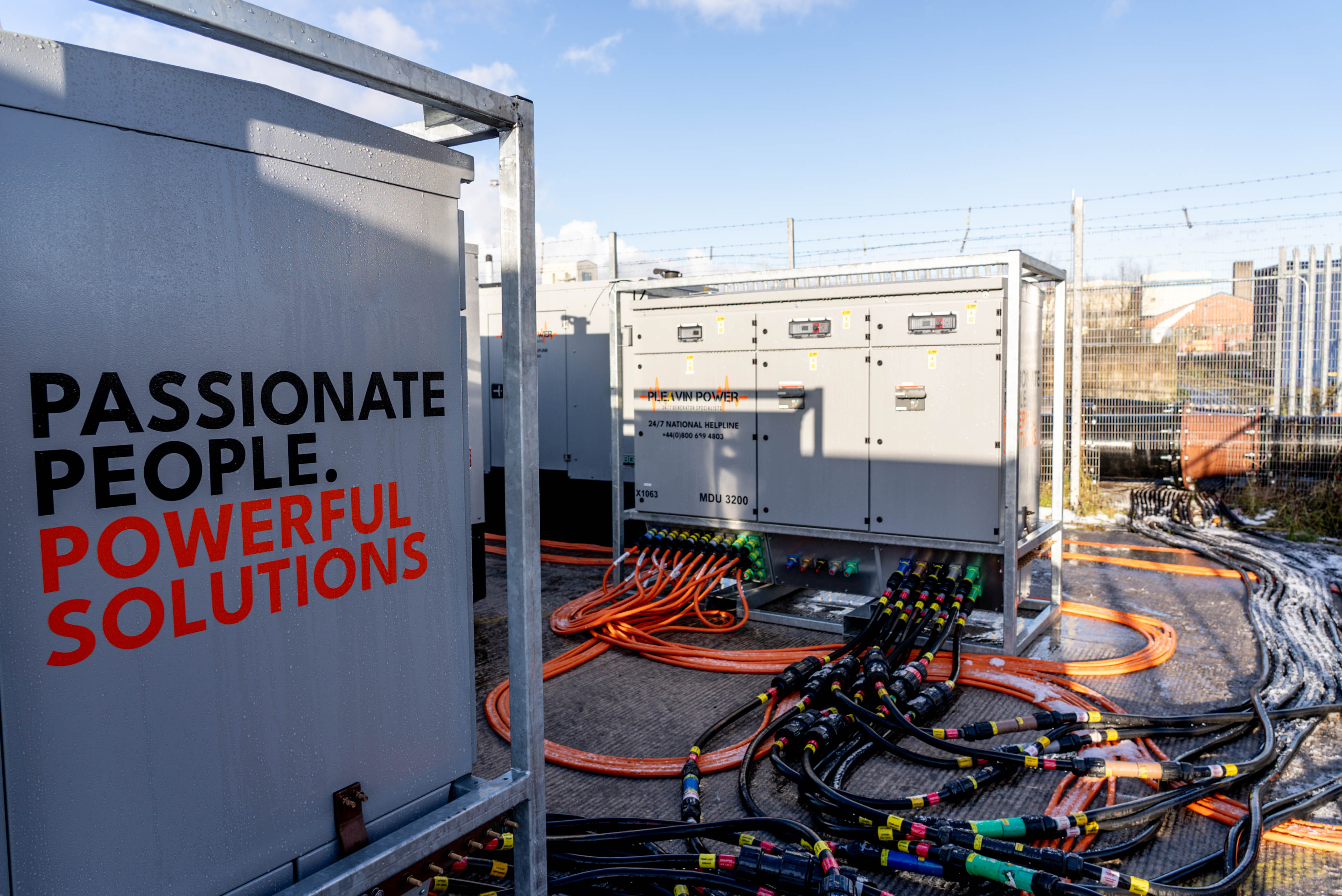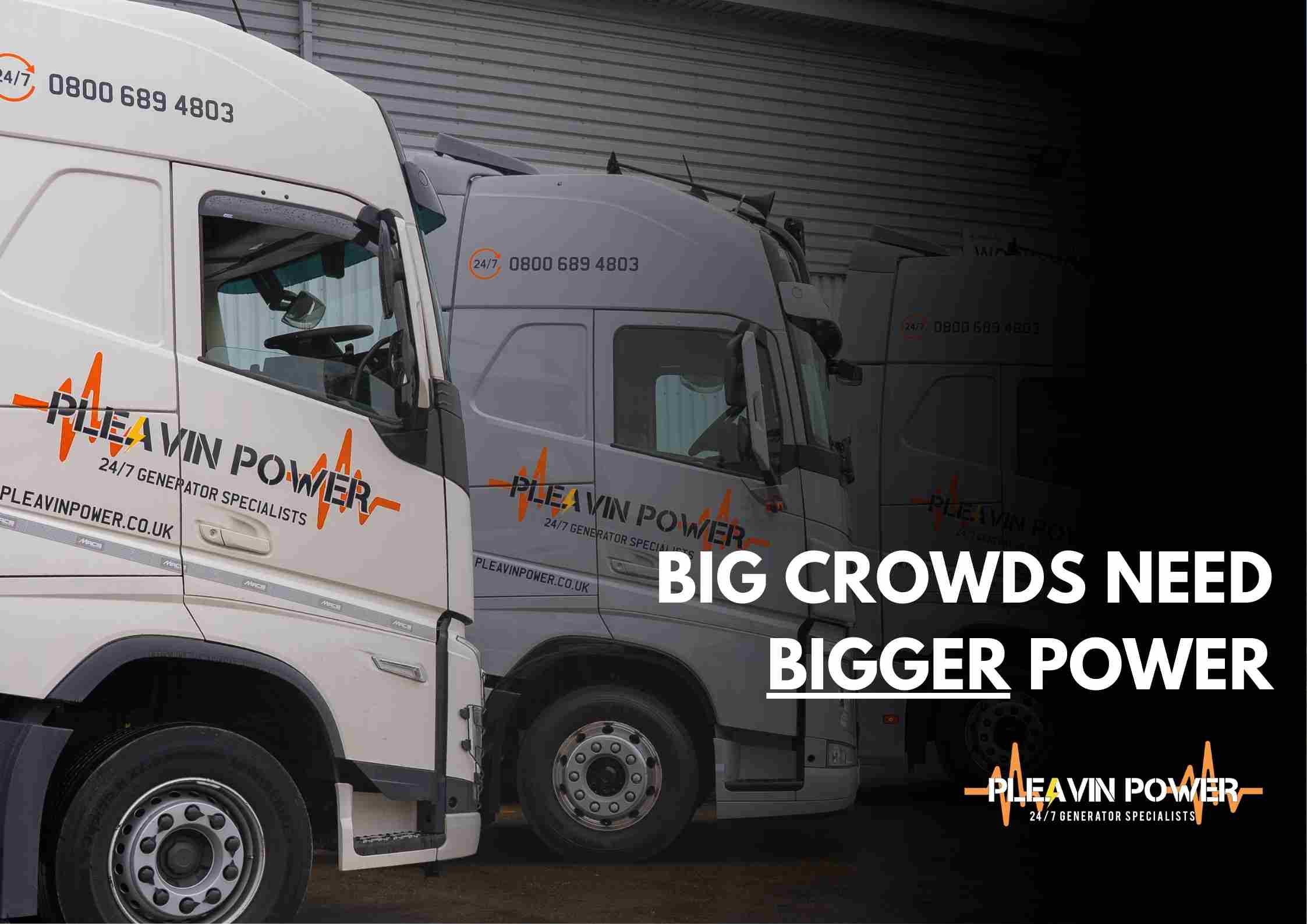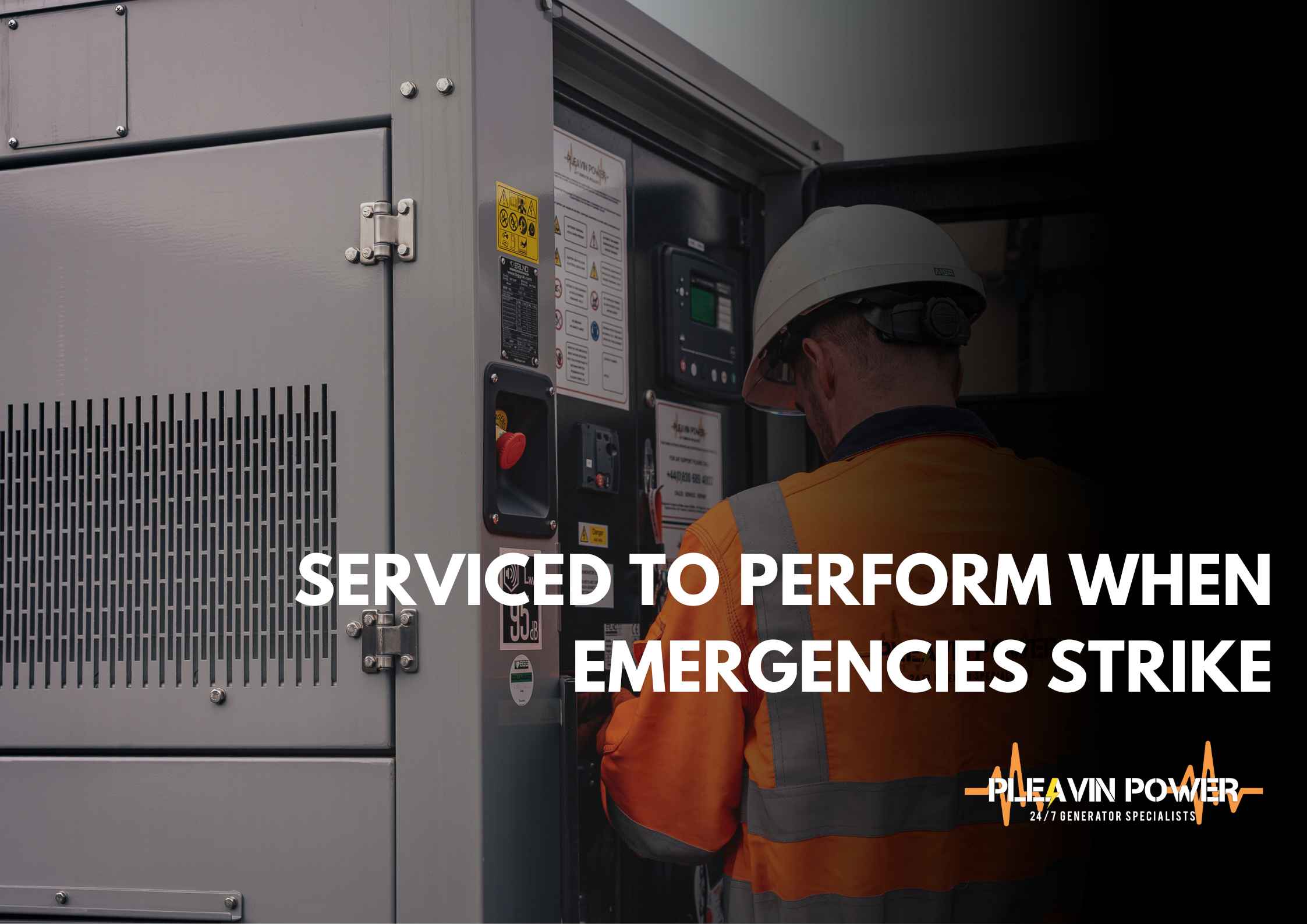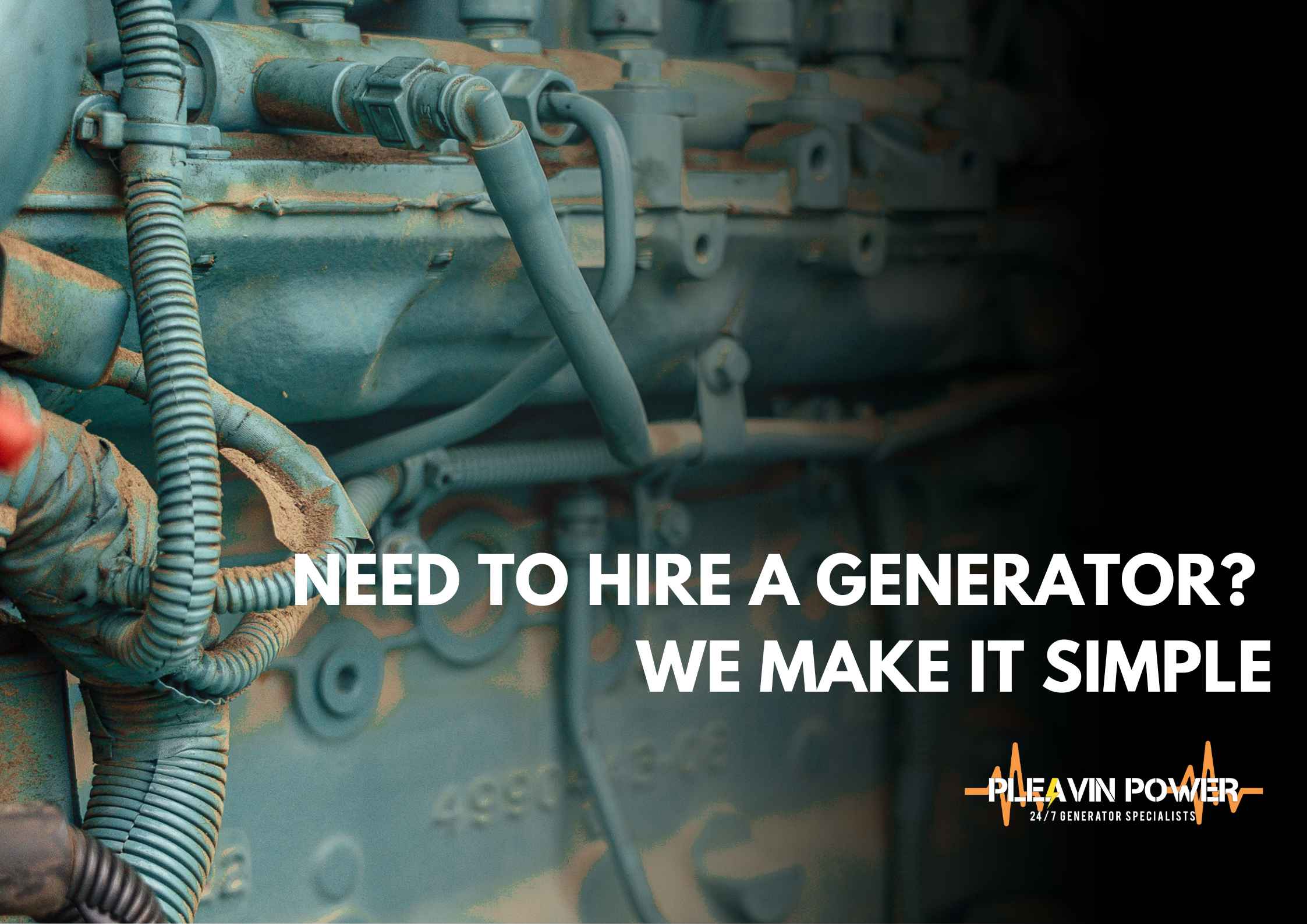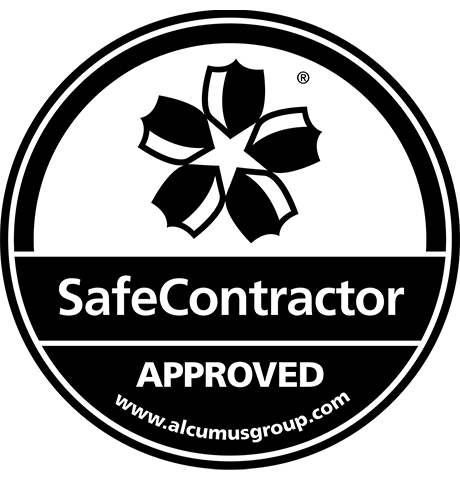Rely on a generator for your business? You’ll know just how crucial it is to keep that engine in good condition.
But no matter how diligent your maintenance schedule is, every engine will eventually reach a point where it starts to underperform. This could be due to an issue that can be resolved, but it’s often the case that the generator is reaching the end of its functioning life.
In this case, you’ll need to decide whether it’s worth reconditioning your generator engine, or if it’s time to invest in a new one.
Why Regular Generator Servicing Is a Smart Move
To avoid a situation where your generator starts to fail or underperform, it’s best to take a proactive approach to maintenance and servicing.
Just like any piece of hardworking machinery, your generator needs regular attention to stay in optimum condition. Servicing not only extends the engine’s life, but also helps you catch small issues before they escalate into major (and majorly expensive) problems.
It’s all about preventative maintenance, to keep your generator running efficiently and reduce the risk of unexpected breakdown. Ultimately, regular servicing could save you a great deal of money in the long run.
There’s also safety and compliance to consider, as Health and Safety Executive (HSE) guidelines state that all work equipment must be maintained so that it is in efficient working order and good repair.
How Often Does A Generator Need To Be Serviced?
The ideal frequency for servicing a generator depends on how often it is used.
For standby generators, servicing every 6 to 12 months is usually sufficient. As for how often a diesel generator should be serviced if it’s in regular or continuous use, more frequent checks are recommended at roughly every 250 to 500 hours of operation.
A thorough generator service should include:
- Oil and filter changes
- Fuel system checks
- Load testing
- Inspection of belts and hoses
- Battery checks
- Electrical system testing
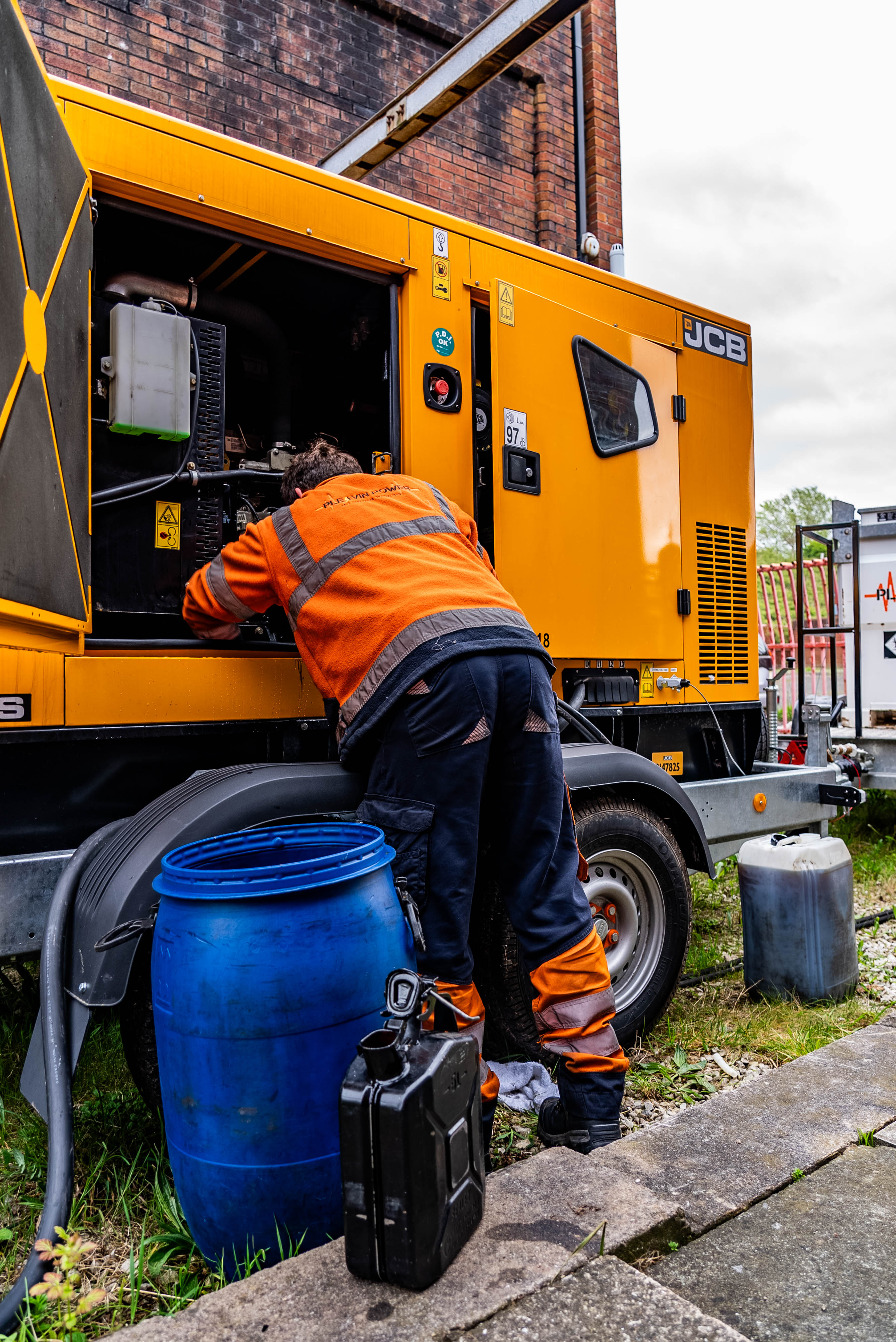
Warning Signs Your Generator Might Be Due for Some TLC
Watch out for these common symptoms that could indicate your generator needs servicing,or possibly more serious attention:
- Slow or failed starts
- Excessive smoke or unusual noises
- Sudden fuel inefficiency
- Frequent shutdowns or alarms
- Visible leaks or corroded components
- Reduced power output
If you spot any of these, you should call in a professional before things get worse.
Recondition or Replace? Here’s How to Decide
Eventually, every generator engine faces wear and tear that just can’t be fixed with simple servicing.
At this point, you have two main choices:
- Recondition the engine
- Replace the engine entirely
The right path depends on a few key factors, such as the age of the generator, how much it’s used and your company’s long-term needs. Of course, it’ll also depend on the cost, and whether your business can afford the expense.
When Fixing Up Your Engine Makes Sense
Reconditioning is a practical, cost-effective option when the core components of your generator are generally still in good condition.
The process involves stripping down the engine, repairing or replacing worn parts, and restoring the unit to near-original performance.
Reconditioning is a smart choice if any of the following apply:
- The engine is under 10 years old and has a solid maintenance history
- The damage is limited to specific components
- You want to extend the generator’s lifespan without the high upfront cost of replacement
- Downtime needs to be minimised – A reconditioned engine can usually be ready faster than sourcing and installing a brand new unit
Many businesses also choose reconditioning because it’s environmentally friendly, as well as being significantly cheaper than purchasing a new engine.
When It’s Time to Just Get a New One
While reconditioning definitely has its benefits, sometimes it’s just not worth the expense. If your generator is reaching the end of its serviceable life, or the damage is extensive, replacing the engine might be your best bet.
You might want to consider replacement if:
- The engine is more than 15 years old and is breaking down frequently
- The cost of repairs exceeds 50% of a new engine
- There’s recurring failure even after reconditioning attempts
- You need higher performance or upgraded technology for evolving business needs
New generator engines come with a whole host of benefits too, compared to older models. For example, improved fuel efficiency, lower emissions and better compliance with modern regulations. This can make them a solid long-term investment, if you have the funds available.
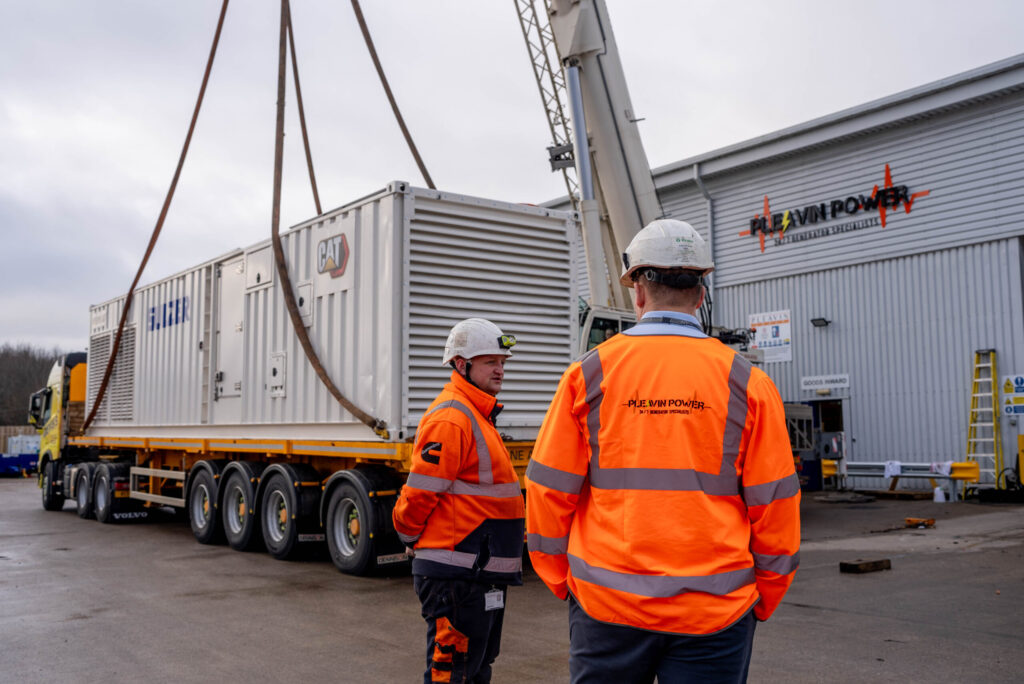
Balancing Downtime, Repair Bills and Replacement Costs
Choosing between reconditioning and replacing isn’t just about the state of the engine. It’s also about what works best for your operations and your budget.
Here are a few key things to consider:
- Downtime – can your business afford to be without power for days or weeks?
- Availability – is a replacement engine in stock, or will there be a long lead time? You might need to shop around to find a supplier who can deliver and install quickly.
- Cost implications – this includes both the short-term savings and long-term value
- Warranty and lifespan – reconditioned engines often come with shorter warranties, while new ones offer peace of mind for longer
Need a Hand? Here’s Where to Get Expert Help
Whether you’re unsure what’s wrong with your generator, need routine servicing or are deciding between reconditioning and replacing an engine, you don’t have to go it alone.
It’s far better to seek professional help and support, so you can make the best choice for your company, now and in the future.
Here at Pleavin Power, we can help with:
- Carrying out diagnostic assessments to see how your generator is really performing
- Providing honest recommendations based on your generator’s condition
- Performing professional reconditioning using quality parts
- Carrying out minor and major generator repairs
- Supplying and installing new engines with minimal disruption to your business.
